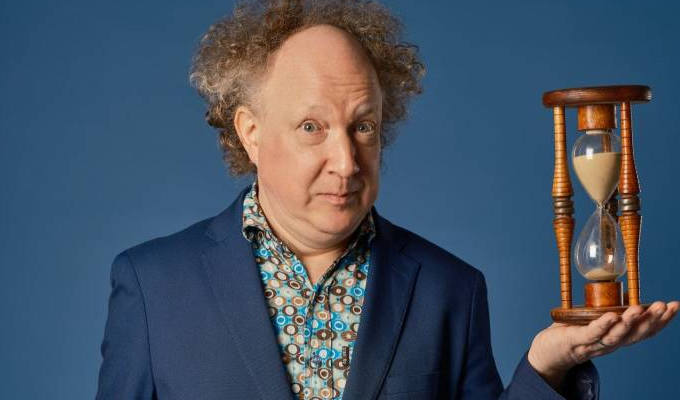by The Pythons
The most obvious thing about this glossy coffee-table tome - which threatens to be the last book the Pythons will write together - is its sheer beauty. Every one of the 350 or so sumptuously designed pages is a visual delight, lavishly illustrated with mementoes from the team's rich history.Among the hundreds of images are candid pictures from the sets of their movies and TV shows, swathes of scrapbook ephemera such as tickets, posters and magazine posters, plus, of course, samples of Terry Gilliam's gloriously distinctive artwork.
But it doesn't just look stunning, it's a cracking read, too; a definitive guide to the formation, work and slow disintegration of one of the most influential creative forces in comedy. You don't have to be a die-hard Python anorak to appreciate the impact Graham Chapman, John Cleese, Terry Gilliam, Eric Idle, Terry Jones and Michael Palin had on the face of British humour, nor do you need to be a slavish devotee to enjoy this pacey and entertaining history.
The tale is told in the surviving Pythons' own words, with Chapman's side recounted through extracts from his autobiography and interviews with his family and lover David Sherlock. Entries from the diaries of Michael Palin and, occasionally, Terry Jones, add to the contemporary detail.
It concentrates almost exclusively on their body of work rather than on their personalities, but it doesn't take much Reading Between the Lines to sense the tensions, rows and frustrations that niggled the group as time went on. Chapman is obviously the most interesting character, if only because of the combined tragedies of his chronic alcoholism, society's intolerance to his homosexuality and his premature death' but you get plenty of glimpses into the emotions and driving forces behind his colleagues, too.
Most the team clashed with each other at one point or another. Chapman's relentless drinking angered his colleagues when it took its toll on their work, necessitating scores of retakes on every sketch. Cleese infuriated the others with his standoffishness and reluctance to continue working with them ("It had never occurred to me at the start that Python was going to become an almost exclusive activity what I resented at the time is that they absolutely would not take my worries seriously"). And Gilliam wound everyone up with his unrealistically meticulous direction on Monty Python And The Holy Grail, trying to move the cast around like the "little bits of paper" he used for his animations.
Their history has been told before, of course, but never in such blow-by-blow detail. Starting from evocative accounts of the individuals' formative years in the Fifties, the book encompasses long-forgotten early work such as the TV shows Now! and Roundabout, defining moments such as the stage show Cambridge Circus or the BBC's At Last The 1948 Show, as well as all the Python series, films, books records and live work. It's comprehensive, yet deftly avoids getting bogged down in the sort of petty detail Python followers can obsess about.
That said, the joy is as much in the trivia as it is in the fascinating recollections surrounding now classic moments of showbusiness history. Revelations include the facts that Eric Idle's grandfather was a circus ringmaster, that Terry Jones was in panto with Richard Stillgoe, that the Pythons sold sketches that they were unhappy with to The Two Ronnies, and that Elvis Presley was a fan who called people 'Squire' after seeing the Nudge, Nudge sketch.
The sextet are all enjoyably eloquent about their work, as well they might after speaking about it from more than 30 years, and all the oft-repeated stories are here: how the BBC's attitude changed from incomprehending indifference to censorious moral guardians as the Pythons became increasingly popular, how Lord Delfont pulled the funding from Life Of Brian amid fears it was blasphemous or how Graham Chapman met his lover in Ibiza with the typically British chat-up line: "Are you camping here? Can I come and see your tent?"
Their recollections of key incidents don't always tally - that's human nature. But the discrepancies are often more revealing in themselves. In one paragraph, for example, Cleese praises Gilliam's animations as a "great treat" in the TV shows; the next Gilliam himself recalls: " John never liked the animations"
Cleese is also surprisingly downbeat about the Pythons' influence. "Python certainly changed comedy, but in a rather negative way," he argues on the penultimate page. "Because instead of people taking our stuff to the next stage, they avoided it. So it had a rather disappointing effect, which was to close off an avenue for a particular type of humour - and I'm surprised that that's the way it happened."
But Cleese must be one of the few people left disappointed by the impact of the truly groundbreaking work. And here, at last, is a book that does justice to the Pythons' rich legacy.
Steve Bennett
September 26, 2003
Published: 22 Sep 2006






